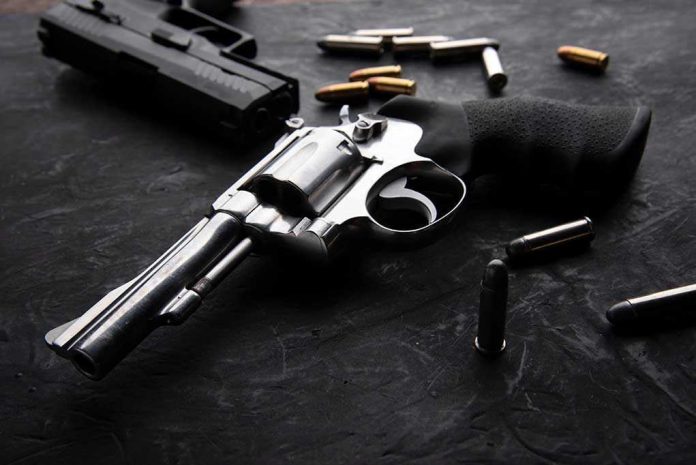
Just when you thought the media-fueled political chaos in Europe couldn’t get any wilder, a self-proclaimed pacifist with a gun put Slovakia’s prime minister in the crosshairs—literally—and now the whole country is on edge wondering whether justice, sanity, or just more division will come out of the high-stakes trial.
At a Glance
- Slovak Prime Minister Robert Fico was shot and nearly killed by a pro-Ukraine gunman amid explosive political polarization.
- The accused, Juraj Cintula, claims he acted out of political anger over Fico’s Ukraine policy, but insists he isn’t a terrorist.
- The trial has become a circus of confessions, courtroom outbursts, and finger-pointing, while Slovakia’s political divide widens.
- Fico’s government blames the media and opposition for radicalizing the attacker, fueling a dangerous climate of hate.
Polarization, Violence, and the Unthinkable: Slovakia’s Political Meltdown
Robert Fico, Slovakia’s four-term prime minister and the bane of Brussels bureaucrats everywhere, was barely a month into his latest term when a gunman stepped out of the shadows and opened fire at point-blank range. This wasn’t just some random act of violence. It was the culmination of years of escalating tension, fuelled by a government that dared to buck the EU’s Ukraine agenda and a media class that never missed a chance to stoke the flames. Now, as Fico recovers from his wounds, the country he leads is tearing itself apart over what—or who—created this toxic mess.
The would-be assassin, Juraj Cintula, isn’t some cartoon villain. He’s a 71-year-old ex-miner and poet—yes, you read that right—who described himself as a pacifist before deciding that shooting a sitting prime minister was a sensible way to express his political frustrations. Cintula confessed immediately, blaming his anger at Fico’s refusal to arm Ukraine. But in court, he’s tried to spin it as a “warning shot” against government corruption, all while denying he’s a terrorist. If this sounds like the plot of a dark comedy, it’s because Slovakia’s political reality has become indistinguishable from satire.
The Trial: Confessions, Conspiracies, and a Country on Edge
As the trial grinds on, Slovaks are getting a front-row seat to the spectacle of democracy under siege. Cintula, who offered a plea bargain that prosecutors flatly rejected, has peppered the proceedings with outbursts and shifting stories. He claims he only meant to wound, not kill, and points to the angle of his shots as proof. Psychiatric experts testify he’s not insane—just impulsive, egocentric, and, remarkably, of slightly above-average intellect. The prosecution wants to nail him for terrorism; his defense says he’s just a disgruntled citizen pushed too far by a climate of political hatred.
The details of Fico’s injuries, revealed in court, were grisly enough to silence rumors that the whole thing was staged—a favorite conspiracy theory of those who think everything is a false flag these days. Fico’s own legal team has gone on the offensive, blaming opposition parties and “irresponsible” journalists for whipping up the kind of hysteria that made this attack possible. The opposition, naturally, claims Fico’s own rhetoric and strongman tactics are to blame for the country’s poisonous atmosphere. And while the judges and prosecutors try to keep the circus under control, the rest of Slovakia is left to wonder who, if anyone, can bring the country back from the brink.
What’s at Stake: More Than Just One Man’s Fate
This isn’t just about one failed assassination attempt. It’s about the future of a country where the political temperature is so high that violence has become thinkable, and where trust in institutions—government, media, judiciary—has been eroded by years of mutual suspicion and partisan warfare. If you’re a fan of constitutional order, the rule of law, or just plain common sense, what’s happening in Slovakia should set off every alarm bell you have.
The outcome of Cintula’s trial will set the tone for how Slovakia, and maybe all of Europe, deals with the new reality of political violence. If the courts go easy, they risk sending a message that political rage is a valid excuse for bloodshed. If they come down too hard, they risk martyring a man who already claims to be the voice of the people. Meanwhile, the media gets to play both arsonist and firefighter, fanning the flames of outrage while wringing its hands about the fallout. It’s a script that’s all too familiar to anyone watching the slow-motion collapse of Western political norms.
For ordinary Slovaks, the message is bleak: their leaders can’t protect themselves, let alone their citizens; their media can’t tell the truth without being accused of incitement; and their democracy is just one angry man with a gun away from chaos. The only real certainty is that the wounds—physical, political, social—won’t heal any time soon. And if you think this kind of madness couldn’t happen closer to home, just remember what happens when the constitution is ignored, the media abandons its duty, and the public’s frustration boils over. Slovakia is just the latest canary in the coal mine.







